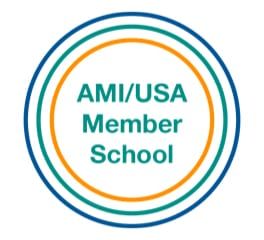Curriculum
The Montessori method of education works because it recognizes and incorporates the developmental level, not age, of the child. As identified and described by Dr. Maria Montessori, there are four Planes of Development that humans pass through as they mature:
Phase 1: The Absorbent Mind – Ages Birth to 6
This stage is recognized as the most critically important phase of brain development in a person’s life. Children in this developmental phase ask why questions, they absorb information and learn from their environment with tremendous ease and unconsciously.
Phase 2: The Reasoning Mind – Ages 6-12
This is the elementary age child. At this phase of development children’s desire for engagement in social behavior expands, and the child of this age asks questions involving how, when, where and what. The elementary age child is mentally in the process of moving from concrete thinking toward abstraction. This process is generally completed by the time they reach 11 or 12 years of age.
Phase 3: The Adolescence – Ages 12-18
Middle school and high school age children are emerging from childhood and are preparing themselves for their adult roles in life. Like in the Absorbent Mind period, adolescents are in a developmental period of intense physical, intellectual, and social transformation. And as with the prepared environments of the primary level (pre/k), the physical, social, ethical, intellectual, and spiritual needs of students in the third plane of development are central to the educational environment prepared by the Montessori adolescent teacher. Typically students aged 12-15 spend a significant amount of their time studying and learning in a school setting associated with a farm. This part of the program is called “Erdkinder.”
Phase 4: Adulthood – Ages 18-24
These are college and post-college aged young adults.






